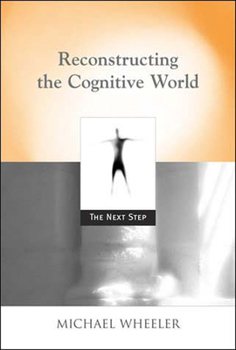Reconstructing the Cognitive World: The Next Step
Select Format
Select Condition 
Book Overview
In Reconstructing the Cognitive World, Michael Wheeler argues that we should turn away from the generically Cartesian philosophical foundations of much contemporary cognitive science research and proposes instead a Heideggerian approach. Wheeler begins with an interpretation of Descartes. He defines Cartesian psychology as a conceptual framework of explanatory principles and shows how each of these principles is part of the deep assumptions of orthodox cognitive science (both classical and connectionist). Wheeler then turns to Heidegger's radically non-Cartesian account of everyday cognition, which, he argues, can be used to articulate the philosophical foundations of a genuinely non-Cartesian cognitive science. Finding that Heidegger's critique of Cartesian thinking falls short, even when supported by Hubert Dreyfus's influential critique of orthodox artificial intelligence, Wheeler suggests a new Heideggerian approach. He points to recent research in "embodied-embedded" cognitive science and proposes a Heideggerian framework to identify, amplify, and clarify the underlying philosophical foundations of this new work. He focuses much of his investigation on recent work in artificial intelligence-oriented robotics, discussing, among other topics, the nature and status of representational explanation, and whether (and to what extent) cognition is computation rather than a noncomputational phenomenon best described in the language of dynamical systems theory.
Wheeler's argument draws on analytic philosophy, continental philosophy, and empirical work to "reconstruct" the philosophical foundations of cognitive science in a time of a fundamental shift away from a generically Cartesian approach. His analysis demonstrates that Heideggerian continental philosophy and naturalistic cognitive science need not be mutually exclusive and shows further that a Heideggerian framework can act as the "conceptual glue" for new work in cognitive science.
Format:Paperback
Language:English
ISBN:0262731827
ISBN13:9780262731829
Release Date:January 2007
Publisher:MIT Press
Length:356 Pages
Weight:0.80 lbs.
Dimensions:0.7" x 5.2" x 9.1"
Age Range:18 years and up
Grade Range:Postsecondary and higher
Customer Reviews
0 rating





